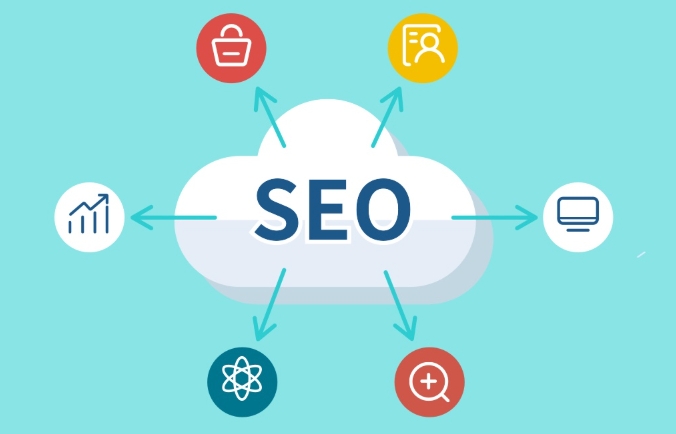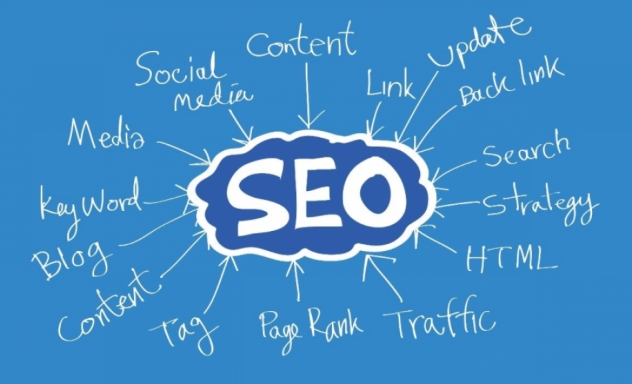SEO has four main types: on-page, off-page, technical, and local SEO. On-page SEO involves optimizing content and HTML elements like titles, headers, and meta descriptions to improve relevance and user understanding. Off-page SEO focuses on building high-quality backlinks through guest posting and earning mentions from authoritative sources. Technical SEO ensures a website’s structure is search-engine-friendly by improving site speed, mobile optimization, and using proper XML sitemaps and robots.txt files. Local SEO helps businesses appear in location-based searches by optimizing Google Business profiles, encouraging reviews, and maintaining consistent NAP information across the web.

SEO comes in different forms, each targeting specific aspects of search engine visibility. Here’s a breakdown of the main types and what they involve.

On-Page SEO
This type focuses on optimizing content and HTML elements directly on your website. Think about things like titles, headers, meta descriptions, URL structures, and the actual content you publish. The goal is to make sure both users and search engines understand what your page is about.

Here are a few key actions:
- Use relevant keywords naturally within content.
- Write clear title tags and meta descriptions.
- Structure content with proper heading tags (H1, H2, etc.).
- Optimize images with descriptive file names and alt text.
A common mistake is stuffing keywords unnaturally. Instead, focus on creating valuable, well-organized content that answers real questions.

Off-Page SEO
Off-page SEO refers to activities done outside of your own website to impact your rankings. The most important part here is building backlinks from reputable, relevant websites.
Some effective tactics include:
- Guest posting on industry blogs.
- Earning mentions from authoritative sources.
- Encouraging social sharing (though not a direct ranking factor).
The quality of links matters more than quantity. A single link from a trusted site can be more powerful than dozens from low-quality sources.
Technical SEO
Technical SEO makes sure your site is structured in a way that search engines can easily crawl and index. This doesn’t deal much with content but rather with how your website is built behind the scenes.
Important areas include:
- Site speed optimization.
- Mobile-friendly design.
- Clean URL structure.
- Proper use of robots.txt and XML sitemaps.
If your site takes too long to load or isn’t mobile-optimized, even great content might not rank well because the foundation isn’t solid.
Local SEO (if applicable)
If you run a physical business or serve a local area, local SEO helps people find you in location-based searches. It’s especially important for restaurants, shops, and service providers.
To improve locally:
- Set up and optimize your Google Business profile.
- Encourage customer reviews.
- Make sure your NAP (name, address, phone number) is consistent across the web.
Local SEO often gets overlooked, but it can significantly boost visibility for nearby customers searching for services like yours.
That's basically how SEO breaks down — each type plays a role, and together they create a stronger online presence.
The above is the detailed content of What are the main types of SEO. For more information, please follow other related articles on the PHP Chinese website!

Hot AI Tools

Undress AI Tool
Undress images for free

Undresser.AI Undress
AI-powered app for creating realistic nude photos

AI Clothes Remover
Online AI tool for removing clothes from photos.

Clothoff.io
AI clothes remover

Video Face Swap
Swap faces in any video effortlessly with our completely free AI face swap tool!

Hot Article

Hot Tools

Notepad++7.3.1
Easy-to-use and free code editor

SublimeText3 Chinese version
Chinese version, very easy to use

Zend Studio 13.0.1
Powerful PHP integrated development environment

Dreamweaver CS6
Visual web development tools

SublimeText3 Mac version
God-level code editing software (SublimeText3)

Hot Topics
 Google Search Console now lets you set your shipping and return policies
Jun 13, 2025 am 10:26 AM
Google Search Console now lets you set your shipping and return policies
Jun 13, 2025 am 10:26 AM
Google now allows you to define your shipping and return policies directly within Google Search Console. According to Google, settings configured in Search Console will override those defined on your website, including any product-level merchant list
 How to protect deep work time and retain focus as an SEO
Jun 19, 2025 am 10:07 AM
How to protect deep work time and retain focus as an SEO
Jun 19, 2025 am 10:07 AM
For any SEO professional, staying focused and productive can be a challenge.With constant algorithm updates, changing trends and a barrage of emails and notifications, it can feel like you’re always playing catch-up.That’s where deep work sessions co
 WordPress 6.5 gains lastmod date for sitemaps files
Jun 23, 2025 am 09:42 AM
WordPress 6.5 gains lastmod date for sitemaps files
Jun 23, 2025 am 09:42 AM
WordPress version 6.5 now includes support for the lastmod element in sitemap files, which can help search engines identify new or updated content. This enhancement may improve crawl efficiency and reduce server load.Lastmod. The lastmod element can
 Mastering SEO account management: The recipe for success
Jun 13, 2025 am 11:21 AM
Mastering SEO account management: The recipe for success
Jun 13, 2025 am 11:21 AM
SEO is full of challenges, but among the hardest is account management. In this article, I’ll share some tips on: Keeping clients happy. Knowing how to balance work and account management. When to push back. How to manage stress.
 Google AI Overviews, clicks and traffic impact: Unraveling the mystery
Jun 22, 2025 am 09:42 AM
Google AI Overviews, clicks and traffic impact: Unraveling the mystery
Jun 22, 2025 am 09:42 AM
Google started including AI Overviews (AIO) in U.S. search results on May 14. While Google has made vague references to the fact that links within AIO may experience higher click-through rates (CTRs), it remains unclear when directly questioned about
 11 of the best free tools every SEO should know about
Jun 14, 2025 am 10:09 AM
11 of the best free tools every SEO should know about
Jun 14, 2025 am 10:09 AM
Working in SEO requires various tools for research and analysis.We need to understand website performance, market trends, user behavior, competitor activity and the effort needed to achieve our goals.While premium tools offer many useful features, se
 Nearly 60% of Google searches end without a click in 2024
Jun 14, 2025 am 10:45 AM
Nearly 60% of Google searches end without a click in 2024
Jun 14, 2025 am 10:45 AM
A majority of Google searches – 58.5% in the U.S. and 59.7% in the EU – result in zero clicks. A zero-click search occurs when users end their session or input a new query without clicking on any results.This data comes from a new zero-click search s
 Want to speak at SMX Next? Now's the time to submit a pitch!
Jun 14, 2025 am 10:05 AM
Want to speak at SMX Next? Now's the time to submit a pitch!
Jun 14, 2025 am 10:05 AM
SMX Next is back online November 13-14, zeroing in on what's currently effective in search and how to gear up for 2025.Search marketing is constantly evolving. In 2024 alone, we’ve witnessed major shifts such as significant Google algorithm updates,






